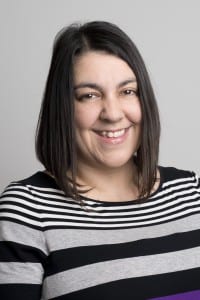A pint of careers story with Pint of Science’s Elodie Chabrol
By uczjsdd, on 11 December 2017
 Dr Elodie Chabrol has a PhD in neurogenetics, and spent 7 years as a postdoctoral researcher at UCL. She’s now a full-time event organiser and science communicator, and she kindly agreed to share her journey and top tips with us.
Dr Elodie Chabrol has a PhD in neurogenetics, and spent 7 years as a postdoctoral researcher at UCL. She’s now a full-time event organiser and science communicator, and she kindly agreed to share her journey and top tips with us.
What are you up to at the moment?
I’m the International Director for the festival Pint of Science. I’m in charge of the international development meaning I help new countries to set up the festival locally.
How did you move from academia to your current role?
I worked voluntarily for the festival during 4 years while being a post doc. I created the French branch of the festival and developed it, so naturally when the Pint of Science founders earned enough to pay me to do that as a full time job I joined the adventure and left academia. I decided academia wasn’t for me a year before leaving. I was in a very competitive field and wasn’t very much supported by my head of the lab and I felt I was enjoying more science communication than academia. I finished my project and left.
What does a normal working day look like for you?
There is no normal day when you plan an event/festival because every day has a new challenge, especially now that I work with 10 new countries. But I’m basically on my computer, I have a lot of digital interactions (skype, emails etc) and I communicate a lot about the festival (Facebook, twitter etc). I talk to every country at least once a week to be sure everyone is ok and on track and no one needs special attention.
What are the best things about working in your role?
I was there at the start of Pint of Science, I founded the French one and I get to see it spread in the world and it’s amazing. Also on a more practical note I work from home and that’s quite easy and I’m happy I get to avoid the commute!
What are the biggest challenges?
Working from home can be one. You are free to work wherever you want but you can also feel lonely sometimes and you need to be disciplined otherwise you end up watching TV in your PJs all day. I’m used to working on the festival from home since I was doing that on the side of my post doc, so for me it was natural.
Working with many countries can also have a downside: not everyone is in the same time zone so sometimes you need to have late skype meetings or early ones and need to rearrange your personal life around it.
Is a PhD essential for your role?
Not per se but the fact that I know the world of research is a big plus for me as my job is to help scientists share their research with the public. I also started giving some lessons on science communication for those who don’t feel confident enough for talks like Pint of Science. I know what it is so I can put myself in their shoes and help them better.
Where do you see yourself going from here?
Well for Pint of Science I’m pretty much as high as I can be. I see the festival growing and me helping all those countries, and once that’s done I think I will probably find other ways to help researchers do some communication. Either by creating some other initiatives or working as a consultant.
What top tips would you pass on to researchers interested in this type of work?
If you want to leave academia and go to that type of work you need experience so get as much as possible on the side. Try to take part in some science communication event organisation, Pint of Science or else to see if you like it. If you like it I’d say do more and more! How to take part? When you go to science events, talk to the organisers to see if they need volunteers. Maybe also start using twitter because nowadays a lot happens there.
 Close
Close



